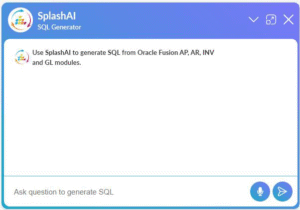Today, the use of social media has slowly but surely invaded every aspect of our lives, to a point where we wonder how we managed without it. Social media provides marketers with a lot of data these days, which help them segment, interact, and target customers. With the increase in the amount of data, the business use of social media has increased multiple folds. However, to arrive at a quantifiable, reliable, and justifiable, conclusion it is very important to capture this data to further analyze and visualize it. This is where BI reporting tool comes to our rescue. It helps in analyzing massive amount of data and provides important insights into patterns that indicate the behavior of the customers.
The use of business intelligence for marketing helps marketers to gain in-depth insights into a client’s desires and attitude. This insight can then be used by the company to design better marketing campaigns, target the right audience, and generate the best results.
How marketing became a data-driven industry!
With many marketing tools, businesses, and customers existing online, marketing has now become an increasingly data-driven industry. The efficiency of marketing can be tracked and analyzed with the help of open rates, click-through rates, movements of prospective clients around websites, downloaded content or social media engagement, and reach.
Marketing Analytics
Social media is perhaps the best platform to gain real-time audience feedback, which gives businesses their best opportunity to interact with customers, solve their queries, and increase customer satisfaction. Business Intelligence tools provide marketers with the capability to capitalize on the data generated by various social media platforms. These business Intelligence tools also help to measure the impact marketing campaigns create on various platforms.
Web Analytics
With so much information available online, customers have become tech-savvy and more socially informed than ever before. With the number of customers increasing each day, solutions that provide all the user data at one place has become very challenging. This is where web analytics plays a vital role. It provides insights using various forms of data that a customer leaves on your website, to help in increasing leads.
Predictive Analytics
Predictive Analytics and other big data tools have changed the way different organizations analyze and harness data. Predictive analytics uncover data that reveal future trends. It finds patterns in the huge amount of data. The information provided by predictive analytics help businesses in creating better marketing campaigns by forecasting trends. It helps in analyzing the past behavior of the customers to draft the best message for them. With the rise of AI and predictive analytics, the art of marketing has just got better.
Most brands, businesses, entrepreneurs, and owners alike understand how important it is to have a web presence for their company. However, they fail to understand the importance of capturing, analyzing, conceptualizing, and then closing on the traffic they receive. SplashBI gives an efficient understanding of the business and offers a strong relationship to the intelligence already in place or a solution for businesses that don’t have any BI software yet.
SplashBI offers solutions that help in:
- Determining the upcoming budget
- Discovering actionable analytics for your organization
- Campaign planning
- Budget analysis
- Sales and marketing resource management
- Combining the data for use in your existing business intelligence (BI) applications
According to a study at McKinsey Global Institute, Data-driven companies are 23 times more likely to acquire customers, 6 times likely to retain customers, and 19 times as likely to be profitable as a result.
63% of marketing professionals say that big data/analytics functionality would be critical to enhancing customer experience in their company.
Marketing Analytics
Marketing Analytics is a combination of technology and processes that help marketers in evaluating the success of their marketing initiatives. It helps them evaluate the performance of marketing initiatives like blogging, channel communications, social media, etc. It uses key business metrics like marketing attribution, ROI and others and gives a clear report of how your marketing initiatives are performing.
They help you determine which campaign elements generated the most revenue last quarter. They also help you understand how customers are engaging with your company and the channel they prefer the most to engage with your company.
Let’s look at how business intelligence for marketing help you deliver the desired results for your company:
-
Smart decision making
For any business, it is vital to have a grip on what their data is telling them. Business Intelligence helps them convert important information into structured and analyzable insight. This leads to better business decisions and better revenues.
-
Marketing goals
For most organizations, their business intelligence programs help them boost their marketing function. They help their sales and marketing teams to work in tandem. BI offers improved visibility of sales information, which helps in fine-tuning the marketing campaigns. When both the sales and marketing teams work together, marketing initiatives turn out to be more profitable and effective.
-
Deliver Outstanding CX
Marketers around the globe compete on the basis of customer experience. So it becomes imperative to understand customers and their behavior. Business Intelligence provides companies with customer insight; this helps them in segmenting customers to identify their most profitable customers. It also helps to attract the right type of prospects and meet your growth targets.
-
Increase productivity
Business Intelligence helps in releasing inefficiency bottlenecks, automate tasks, refine processes, and prioritize work. This improves the productivity of the entire organization considerably.
-
Compliance and Data Accuracy
Business Intelligence helps organizations in understanding where their data resides, what is important, and who should have access to it. It helps them in centralizing data and expose inaccuracies that could lead to increased cost and potential brand damage.
-
Increased ROI
When all the above points are met the company experiences a major improvement in their ROI. Right from sales deals, CX, day-to-day efficiency, and future growth strategies, everything sees a spike in performance.
Conclusion
Business Intelligence for Marketing help businesses adapt to customer needs be it through increased availability of merchandise or improved sales reps. Business Intelligence is here to stay and companies are investing heavily in the training of end-users on business intelligence tools, to encourage fact-based decision-making.








